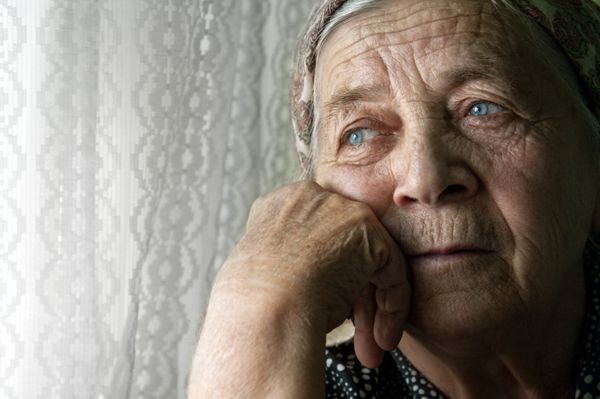
Loneliness may increase the risk of death among the elderly, but the health effects of social isolation may be greater than those of loneliness, according to a new study published this week in the Proceedings of the National Academy of Sciences.
"In many ways, social isolation and loneliness are two sides of the same coin. But they are different: social isolation is an objective measure of how much contact people have with family, friends, and relatives, while loneliness is a subjective experience of lack of companionship and social contact. Someone can appear isolated but not lonely, while another person might feel lonely despite apparently having good social connectedness," explains Andrew Steptoe, the Director of the Institute of Epidemiology and Health Care at University College London, and principal investigator for the PNAS study.

Andrew Steptoe, University College London
Steptoe and his colleagues started from a well-established body of evidence indicating that being socially isolated is bad for your health, and may lead to the development of serious illness and a reduced life span. Steptoe also points to newer research suggesting that loneliness has similar associations with poor health. "But we all know people who might seem socially isolated but don’t experience loneliness because they are comfortable being on their own," says Steptoe. "So we were interested to know whether isolation might be particularly bad when it is accompanied by loneliness."
Therefore, Steptoe's research team set out to differentiate the effects of loneliness from those of social isolation. The researchers studied 6,500 men and women aged 52 and older who enrolled in the English Longitudinal Study of Ageing in 2004. Steptoe and his colleagues assessed the participants’ risk of death through March 2012. Limited contact with family, friends, and community organizations meant that a participant was classified as socially isolated, and a questionnaire was used to measure loneliness.
Steptoe's team found that social isolation was more important than loneliness. It was related to greater risk of dying even after age and background health were taken into account.
Knowing about how lonely participants felt did not add to the ability to predict future mortality. Why? "One reason is that loneliness was more closely linked with pre-existing health problems–for example, people who already had a long-standing illness or depressive symptoms were more likely to feel lonely–and once we had taken these illnesses into account, loneliness was no longer linked with survival," Steptoe explains.

"We would not say that loneliness is unimportant, or that we should not strive to reduce loneliness in older men and women," he adds. "But the take-home message is that we need to keep an eye on the social connections of older people, since maintaining social contacts among seniors and reducing isolation may be particularly important for their future survival."
For More Information:
“Social isolation, loneliness, and all-cause mortality in older men and women,” by Andrew Steptoe, Aparna Shankar, Panayotes Demakakos, and Jane Wardle. PNAS Early Edition, March 25, 2013.


